As the world’s leading sports network and news organization, ESPN has been at the forefront of the sports world for years. Unsurprisingly, its website has long been a go-to for sports fans worldwide looking for scores, news, and everything else sports-related.
While ESPN.com did not go online in 2004, seeing how far this website has come in 20 years is a fascinating look at how much the web has improved in the same period. It also looks at some of the most relevant names and faces in sports two decades ago, like Ken Griffey Jr, Chauncey Billups, and Tom Glavine.
With this in mind, let’s walk down memory lane and use the Wayback Machine to see the visual history of ESPN.com in 2024 versus showing the full website in all its 2004 glory.
Overall Design
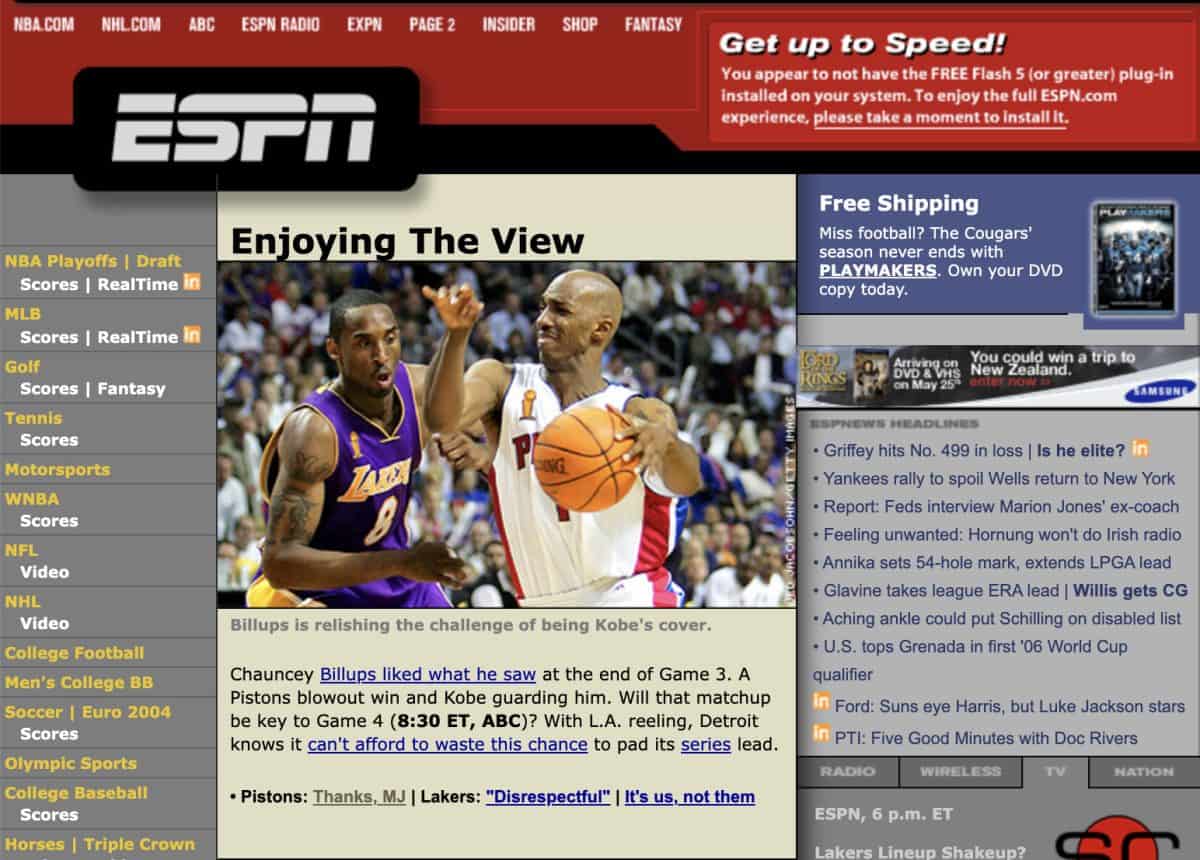
When you look at the 2004 version of ESPN.com, it’s somehow not all that different from today. In this regard, you have a central column of sports-related news, prime stories, and other major highlights. On the left-hand side, you have a link to many of the most prominent sports and other headlines on the right.
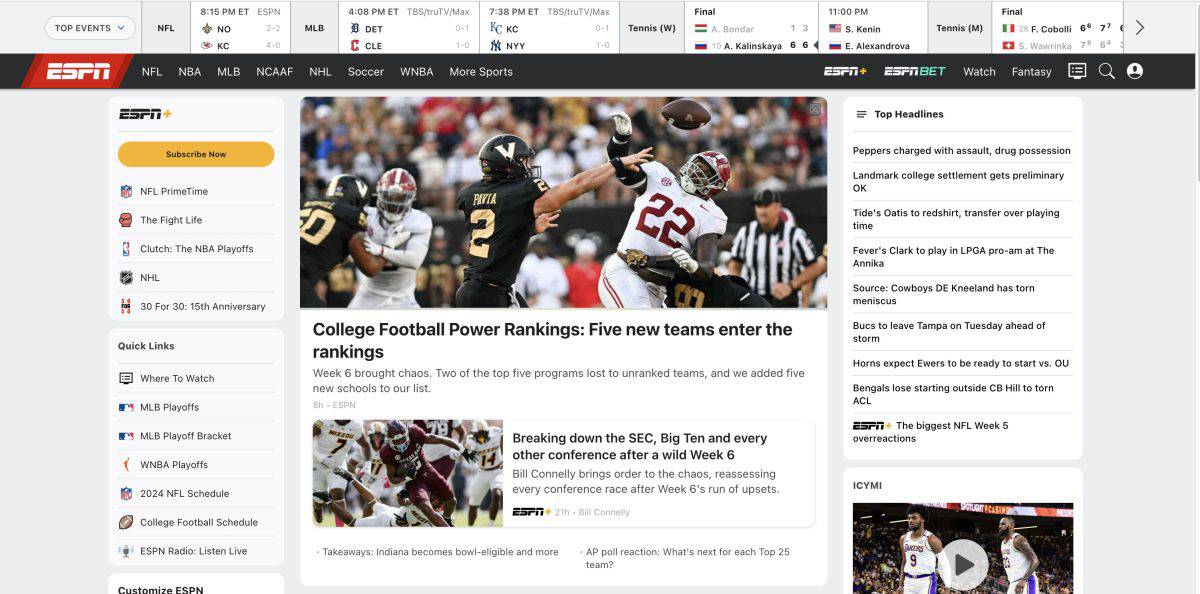
Fast-forward to 2024, and things aren’t all that different regarding the layout. A central column highlights the day’s top news, most notable scores, and other major happenings. Most important, though, is that the 2024 website is undoubtedly cleaner as you have fewer contrasting colors, which makes everything easier to read.
No Sponsored Links
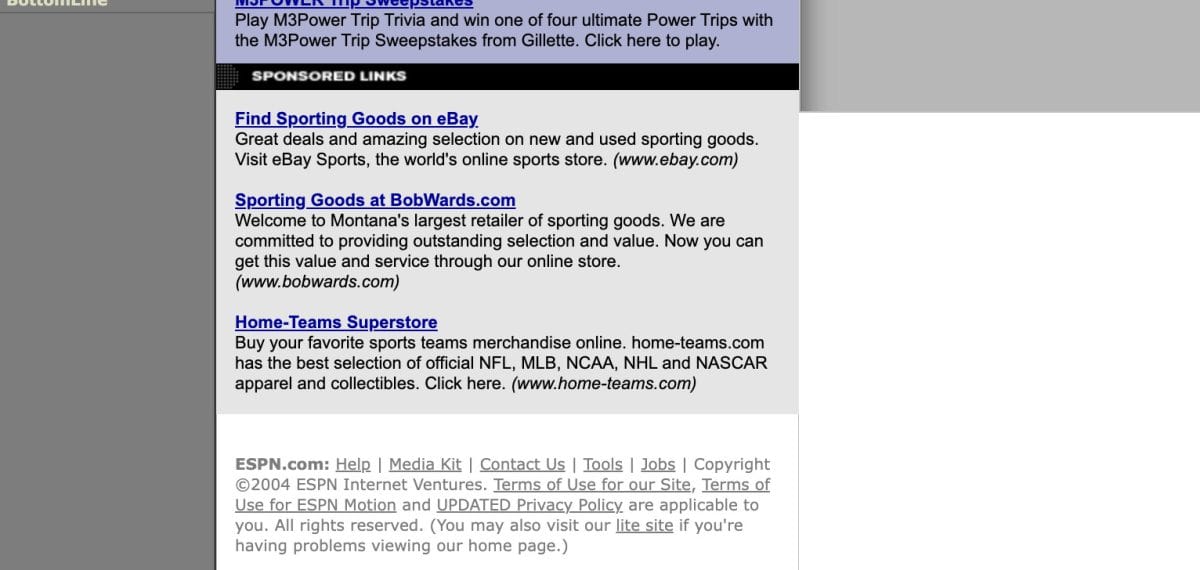
As 2004 was an entirely different world and still part of the early internet era, the ESPN website offered sponsored links. You had links to eBay, home-teams.com, and BobWards, Montana’s largest sporting goods retailer. Today, this would be unthinkable.
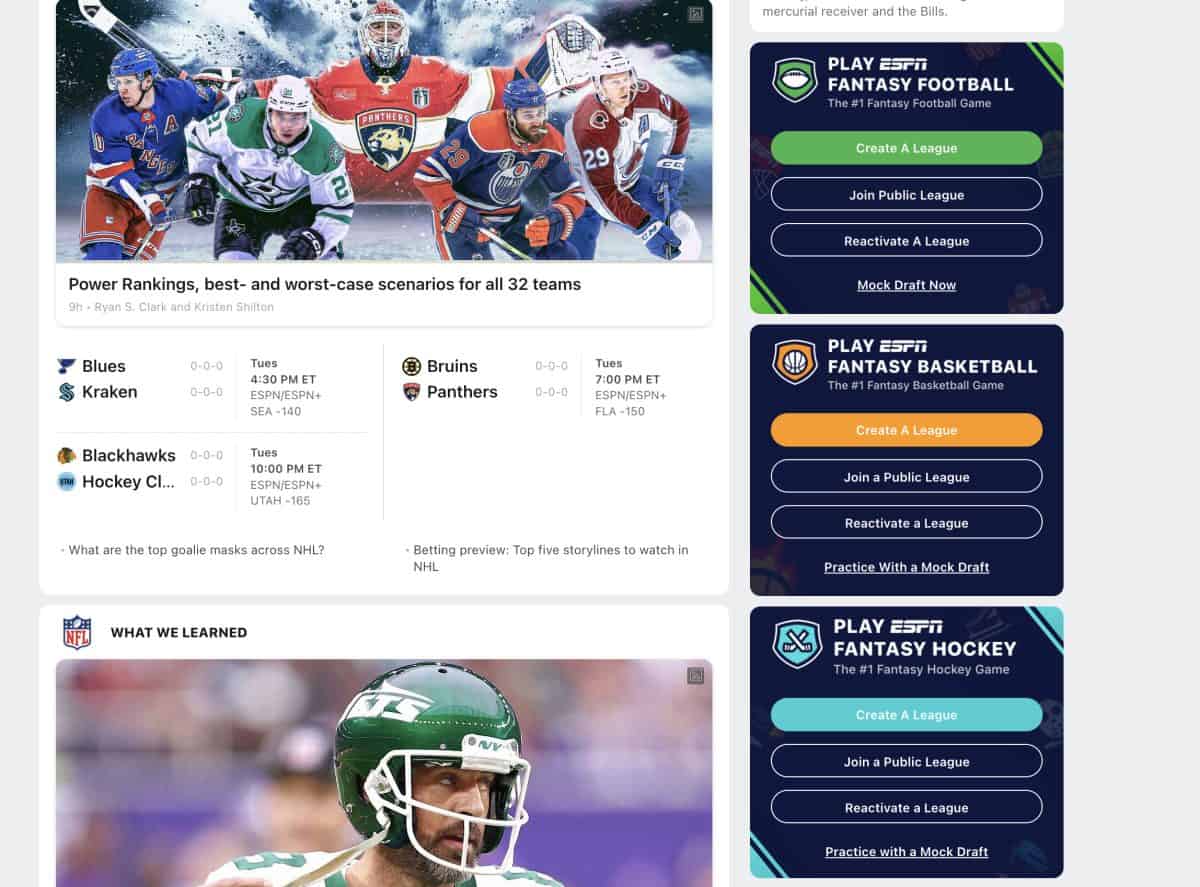
Thankfully, the ESPN website in 2024 does not offer any sponsored links. Instead, ESPN and Disney, the parent company, want to do everything possible to keep you on the page. Instead of increasing revenue through sponsored links, ESPN has introduced services like ESPN+ to grab more money.
External Links Galore
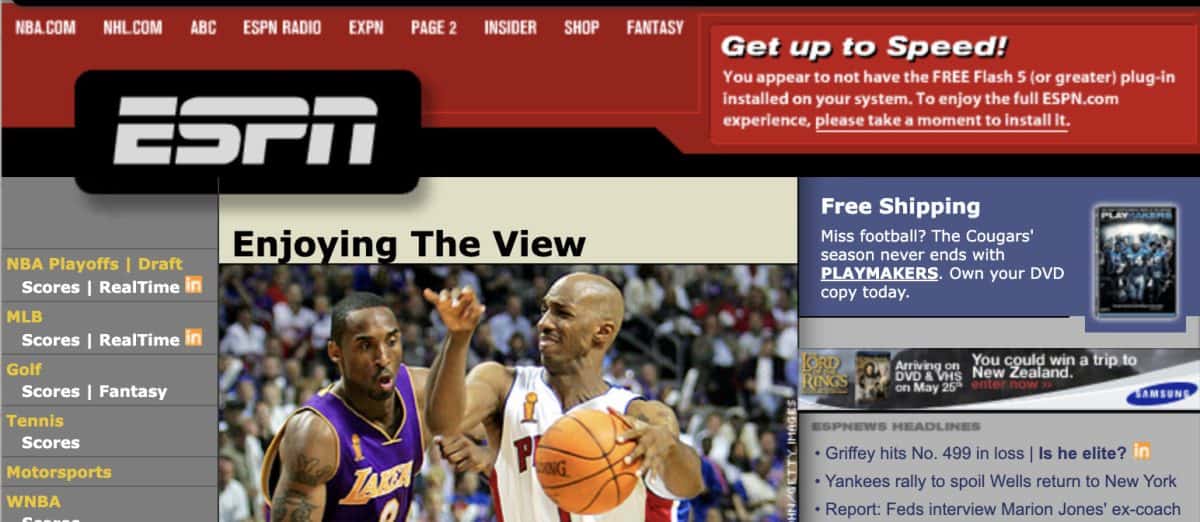
One notable aspect of the old ESPN.com is that it includes external links that take you offsite. Links to NBA.com, NHL.com, ABC, ESPN Radio, and other external links dominate the top of the 2004 ESPN website. It’s surprising to think that ESPN would take readers offsite to either the NBA or NHL official websites, where they could read competitive news updates.
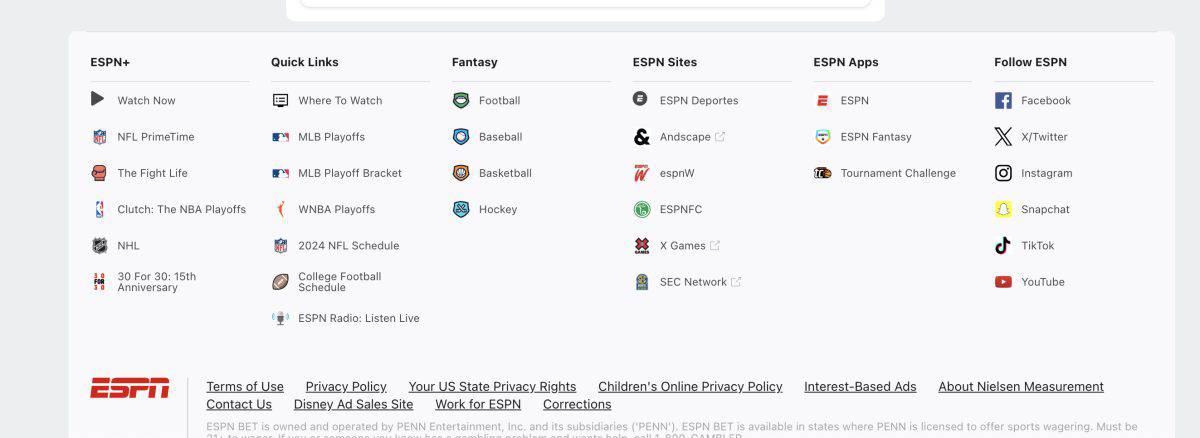
These links are contrasted by today’s website design, which doesn’t generally have links that will take you off the page. Instead, you have links to ESPN’s different subpages, like its NFL, NBA, or MLB pages. Similar to the concern about sponsored links, ESPN wants to keep you on the site for as long as possible. The only caveat is the links dedicated to ESPN’s separate pages for soccer, X Games, and its Spanish pages.
Lots of News
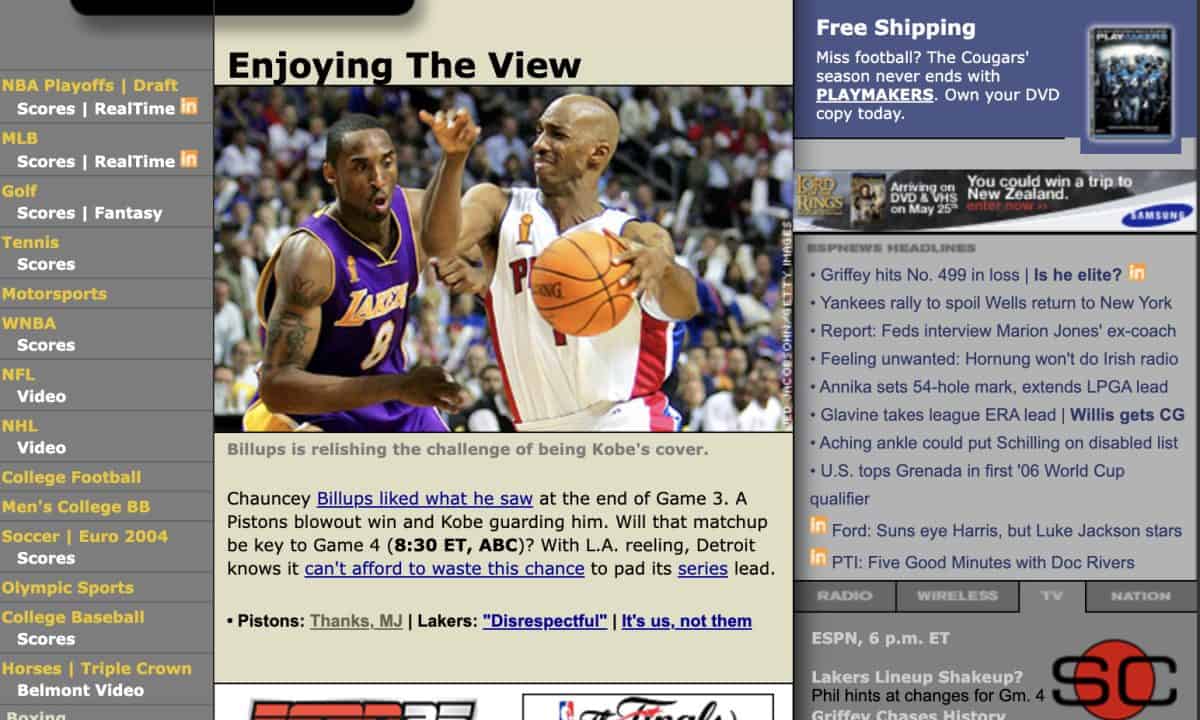
When you go to ESPN.com, it’s likely to do one of two things. The first reason is to see up-to-date scores of your favorite teams. The second thing people visit ESPN for is to learn about the day’s sports news, including trades, injury reports, team updates, and much more. The original ESPN website offers some top headlines, but only around ten different headlines.
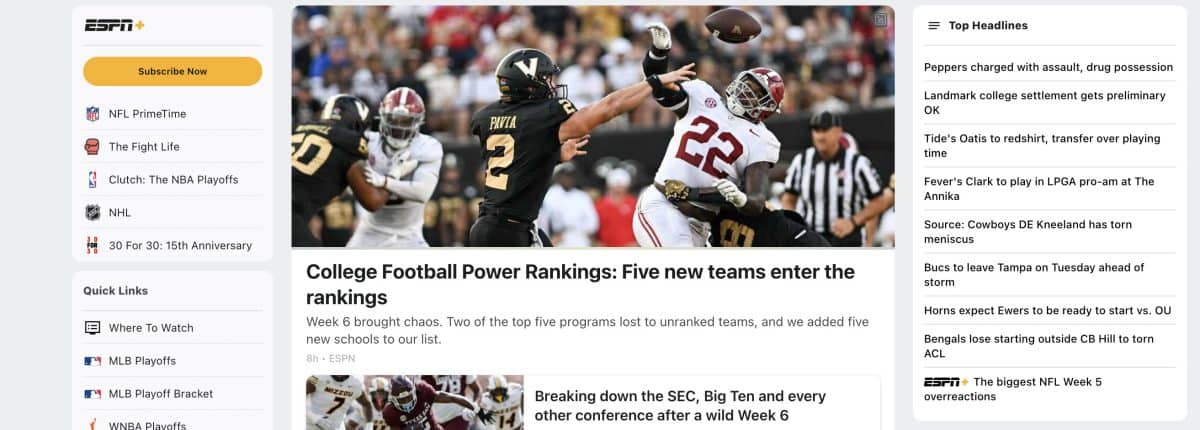
News headlines are all over the ESPN website today.
Contrast this to today’s ESPN website, where you have a handful of headlines similar to the layout of the old site. However, this is amplified by the central column scrolling down through multiple sports, each with its own set of up-to-date headlines. There is also interactive material where you might see a Stephen A. Smith video complaining about the weekend’s football performances.
The image featured at the top of this post is ©monticello/Shutterstock.com.

